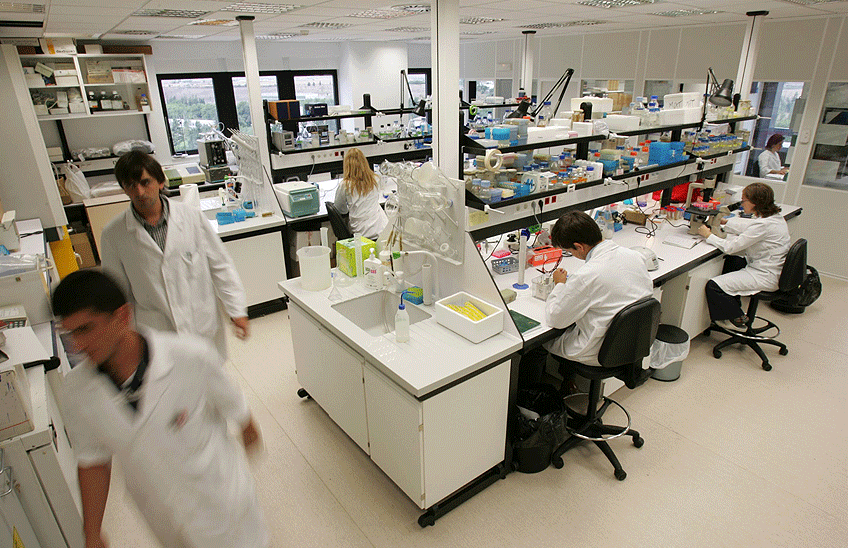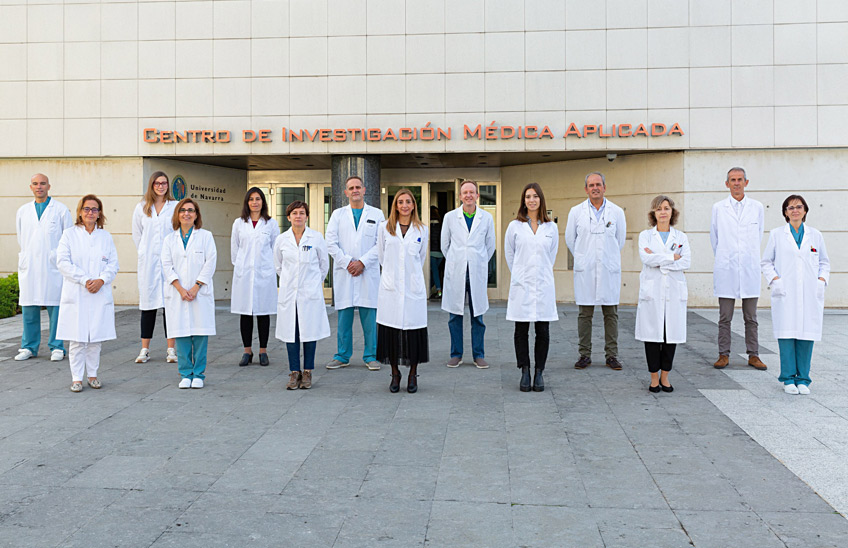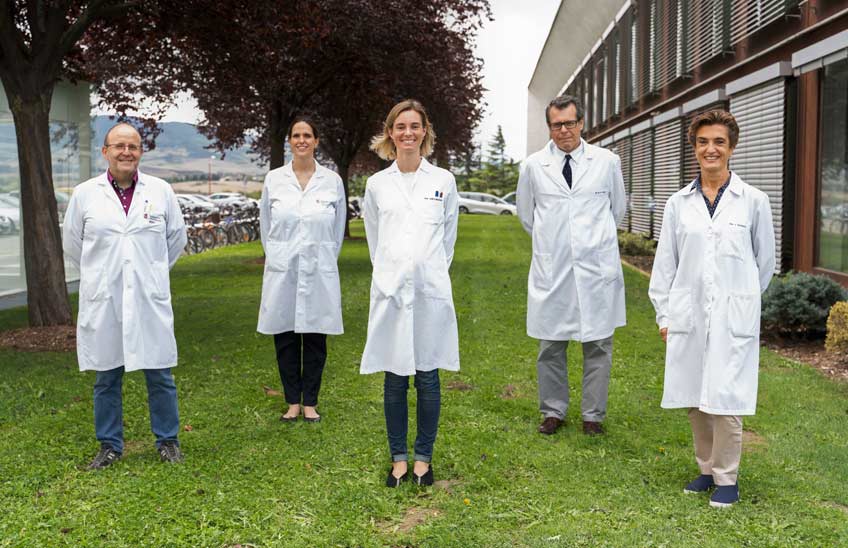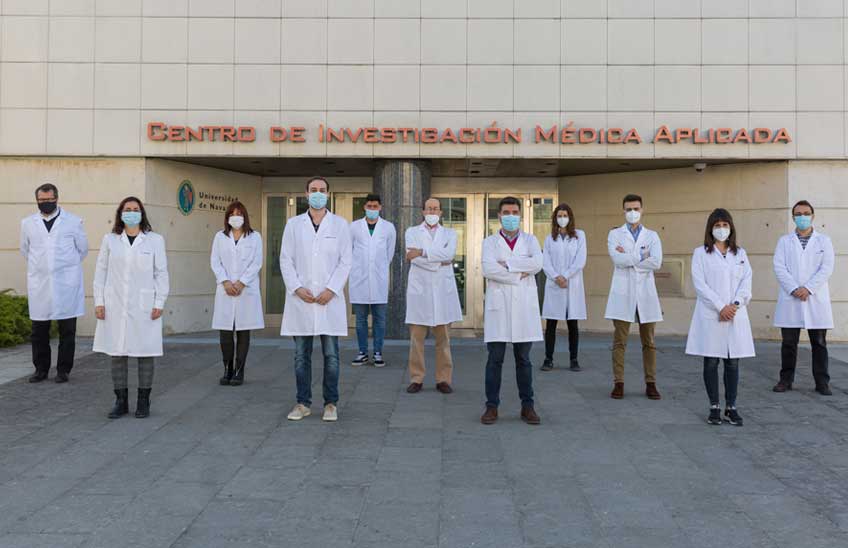Researchers from the Cima University of Navarra prevent the recurrence of the most aggressive breast cancer in mice.
Preclinical study has identified a therapeutic target that prevents relapse in more than 90% of cases
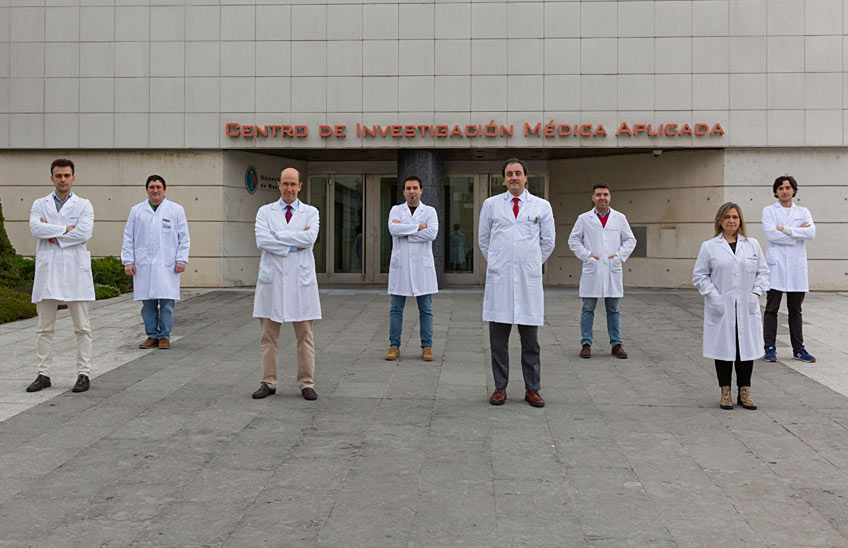
FotoManuel Castells<br>/Los Dres. Fernando Lecanda y Rafael Martínez-Monge, en el centro, con los profesionales del Cima que han participado en el estudio.
27 | 01 | 2022
It is estimated that every year 1,500 Spanish women treated for breast cancer suffer a recurrence of the tumor in the breast itself or in nearby nodes, despite surgical removal and the application of radiotherapy to eliminate any remaining tumor.
Scientists at Cima University of Navarra, in partnership with specialists at the Clínica Universidad de Navarra have discovered the cause of this process and have managed to prevent in mice the relapse of the most aggressive breast cancer, triple negative cancer, in more than 90% of cases.
The researchers developed two new animal models that mimic the human disease and identified an enzyme(ENPP1) as a part core topic of breast cancer recurrence in the resected area. "It was a surprise to be able to "hack" the genetic program used by tumor cells for the training of a new tumor. But what was really fascinating was to decipher all the functions directed by ENPP1," explains Dr. Fernando Lecanda, researcher of the Solid Tumors Program at Cima and co-director of work.
As he explains, "high levels of ENPP1 make it easier for tumor cells released by the tumor, called circulating tumor cells, to be able to nest in the removed tumor bed, even long after treatment, as occurs in patients. In addition, through a mediator called haptoglobin, ENPP1 attracts pro-tumor cells from the immune system, thereby promoting exacerbated tumor growth. Finally, after attracting these immune cells, haptoglobin is able to induce their explosion by forming a dense DNA network (called NET) that protects the tumor and can even lead to new tumor foci in other organs and enhance the aggressive effects of the tumor."
The results have been published in the latest issue of Cancer Discovery, journal of the association American Cancer Society research .
result therapeutic
These results were validated in the tumors of a cohort of breast cancer patients and also suggest new possibilities with other targets that may enhance the anti-relapse effect of ENPP1. Moreover, the combination of anti-ENPP1 together with radiation achieved almost complete eradication of local relapse. "New treatment horizons are opening up with ENPP1/haptoglobin inhibitors. In fact, there are several companies that are developing them and are demonstrating in preliminary programs of study that they do not produce toxicity," says Dr. Rafael Martínez-Monge, co-director of the department of Radiation Oncology at the Clínica Universidad de Navarra and co-director of the work.
This axis (ENPP/haptoglobin) is also present in other tumors such as prostate, lung, head and neck, and some sarcomas. "We therefore think that blocking it could be used to inhibit local relapses or the training of tumor foci in other organs. There are, therefore, fantastic prospects with this new Achilles' heel that could result in therapeutic benefit in many patients," Dr. Lecanda points out.
"It is not the only mechanism, but it is a very prevalent one in cancer. We will have to see what the dependence of this mechanism is in each tumor. Once the most sensitive tumors that depend on this pathway have been identified, it is plausible that clinical benefits will be observed," Dr. Martínez-Monge explains. Some companies have already announced that clinical trials will begin in 2023.
This work, in which researchers from the CIBER de Cáncer (CIBERONC) work, has received funding from high school de Salud Carlos III, the Ministry of Science, research and Universities and the association Española contra el Cáncer, among other public and private institutions.

